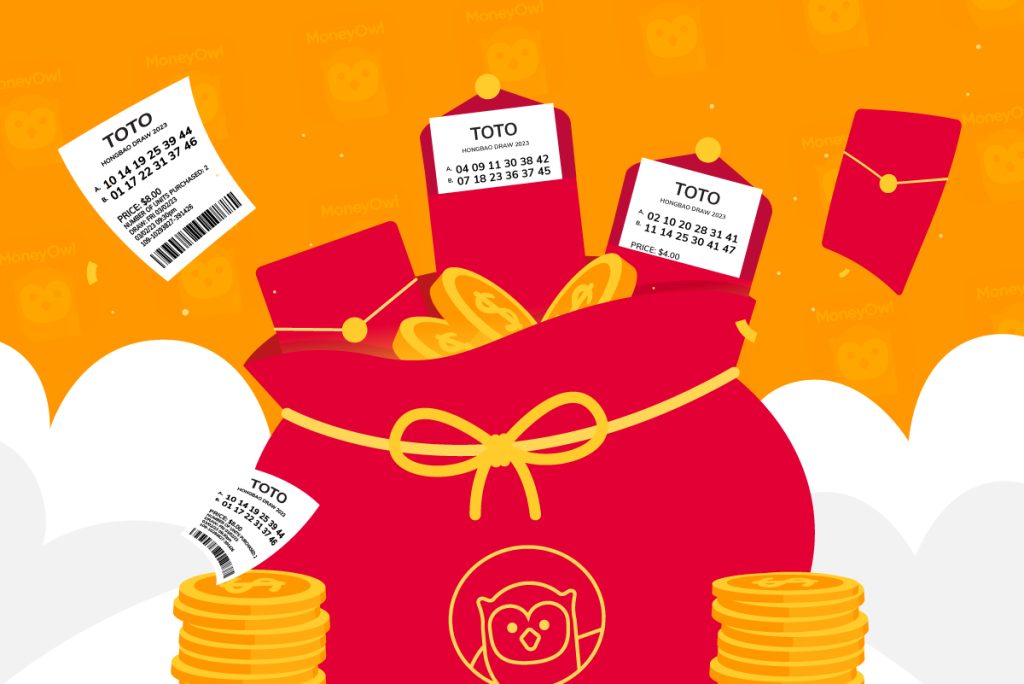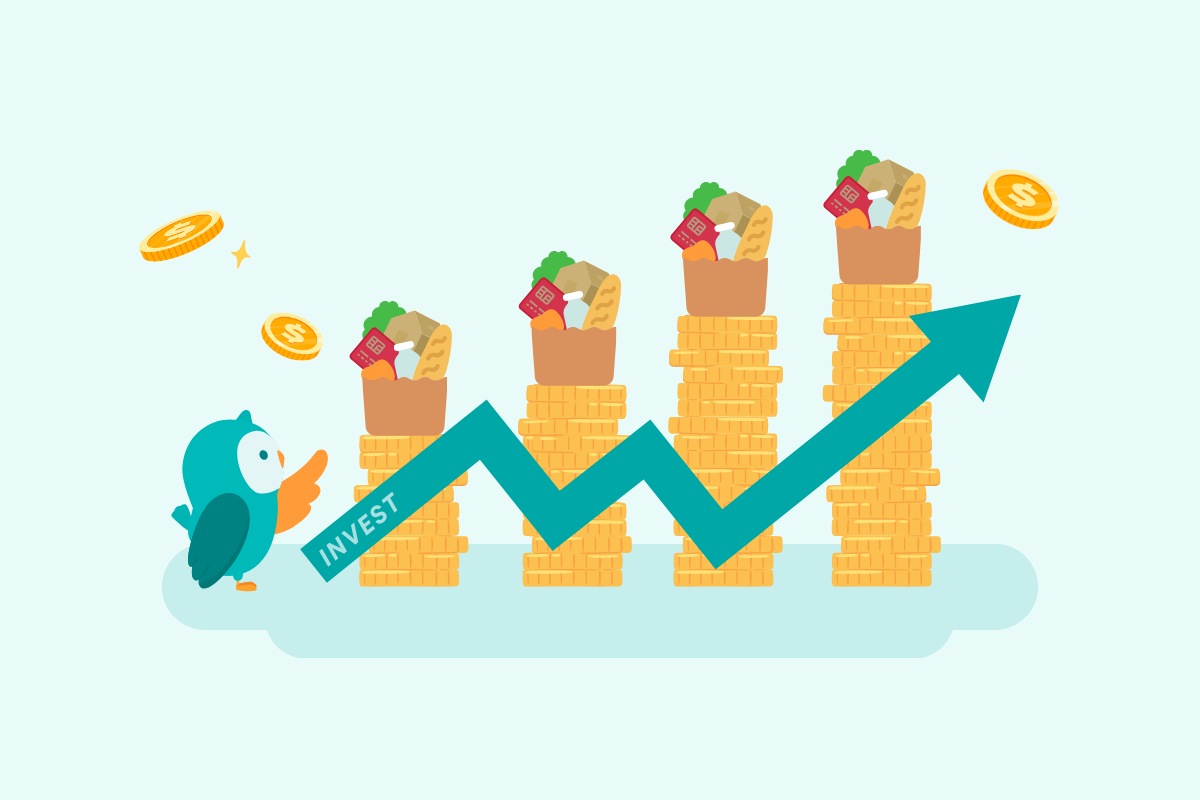Note: It was announced in November 2023 that MoneyOwl will be acquired by Temasek Trust to serve communities under a re-purposed model, and will move away from direct sale of financial products. The article is retained with original information relevant as at the date of the article only, and any mention of products or promotions is retained for reference purposes only.
______________
Hongbao Toto Draws are a fun but highly unlikely play
- We know the odds are bad, but who doesn’t dream and hope for the best?
- For our core goals, go for slow and steady, with good odds
- MoneyOwl hoots: Spend only a little on low probability bets like lottery draws. For what’s most important to you, invest regularly in a globally diversified low-cost portfolio suitable for your time horizon and risk tolerance, and stay the course into the long term.
There is a Singapore tradition of a huge Hongbao Toto Draw during the Chinese New Year season, for prizes of an eye-watering quantum that can be $10 million or more. Some years, you can even reserve bundled packs of tickets beforehand. This Lunar New Year, we have a $12 Million Hongbao Draw taking place on 23 February 2024, at 9.30pm. Will you be buying a ticket?
I did so some years ago when I was part of an office pool. I wasn’t intending to, but my colleague (and fellow CFA charterholder!) issued the following opinion: “The Investment Team strongly recommends that you join the office pool for this draw with $10 each. Yes, the chances of winning $10 million are about 0.001%. However, the probability of you ever earning $10 million doing this job for the rest of your life is absolutely zero. Furthermore, in that 0.001% scenario in which those of us who participate do win, you will be left doing all our work while we go on a holiday. You have till lunchtime to avoid this fate.” Within minutes, the final holdouts – the puritans and the intellectuals – walked over waving red pieces in surrender.
If we are honest with ourselves, even though we know the odds, we all feel that it makes sense to bet $10 in TOTO for the chance of $10+ million because the payoff is so large. Not mathematical sense, but instinctive sense. A windfall is the stuff of dreams and we all need a sliver of hope at times. Screw probabilities. If I win, the realised odds for me are 100%. Before my colleagues faint at their CEO’s heresy, let me highlight that the operative words are “$10” and “if”.
Where Do We Find A High Probability Of Acceptable Returns?
In market-based investment portfolios held into the long term. Global public equities as an asset class have rewarded those who bet on it and stayed invested. Consider the S&P500, the US stock market, which is a big component of global market indices. If you had at least 15 years to not take out your money, it did not matter which year from 1928 onwards that you started investing: you would not have had a negative annualised return. In other words, despite the hell and high water of the Great Depression, dot.com bubble, and the Global Financial Crisis, markets recovered and you would not have lost money. If you excluded these events, the time frame for no negative annualised returns is shortened to 8 years. And in the “median” scenario (when you are neither that lucky or that unlucky), we are projecting the gross average annualised return for global equities including developed and emerging market equities, to be in the 7% region. It is not a windfall such that you can quit your job tomorrow, but the power of compounding returns can help fund your goals and beat inflation.
Many of us have this time horizon. Contrary to common wisdom, even retirees in their 50s or 60s should have at least some equities in their portfolio, as part of their spending will only be much later on, given life expectancies nowadays of 85 or longer. If your time frame is shorter, adding bonds to the portfolio will help to safeguard the odds, albeit at lower return rates.
Some have said that people with little money have no choice but to pin their hopes on such payoffs as in TOTO and 4D. Actually, the less money you have, the less room for error and wastage in your financial plan.
For the risk-averse, topping up your CPF Special Account, or regularly setting aside your spare funds in a higher yield savings account, Singapore Savings Bonds, T-bills or fixed deposits can help you access higher interest rates at very low risk. However, don’t keep too much cash – it won’t help you beat inflation over the long term.
So buy that TOTO ticket, but only with spare change and once in a while. Give it the attention it deserves – a gamble, no more, no less. The same applies to “gambles” on specific stocks or in complex instruments such as options, which need to be approached with care. Also, never borrow to invest.
The Right Way To Invest
But where the odds are in your favour – make that the core. Make it a habit, invest regularly every month in a globally diversified low-cost portfolio that is suitable for your time horizon and risk tolerance, and stay the course into the long term. This is so it can be reliable enough to meet your key life goals, such as retirement, a new home, or your children’s education. At MoneyOwl, we suggest that the best investment philosophy is one that eschews low-probability bets
This article was first written in 2019 and updated in February 2024.
Disclaimer:
While every reasonable care is taken to ensure the accuracy of the information provided, no responsibility can be accepted for any loss or inconvenience caused by any error or omission. The information and opinions expressed herein are made in good faith and are based on sources believed to be reliable but no representation or warranty, express or implied, is made as to their accuracy, completeness or correctness. All investments carry risk. Expressions of opinions or estimates should neither be relied upon nor used in any way as an indication of the future performance of any financial products, as prices of assets and currencies may go down as well as up and past performance should not be taken as an indication of future performance. The author and publisher shall have no liability for any loss or expense whatsoever relating to investment decisions made by the reader.





